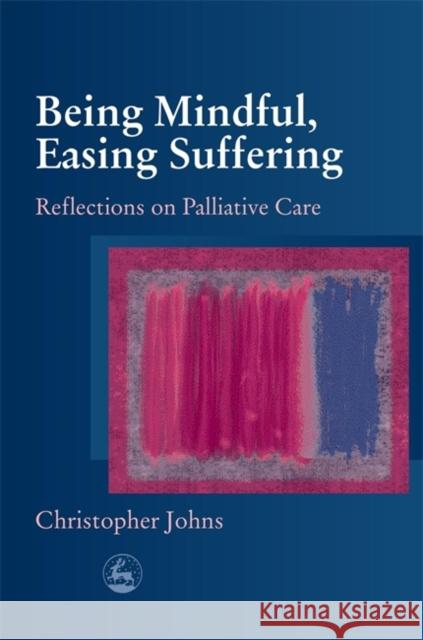Being Mindful Easing Suffering » książka
Being Mindful Easing Suffering
ISBN-13: 9781843102120 / Angielski / Miękka / 2010 / 272 str.
There is much to learn about easing suffering from John's reflective narrative. The journal is both evocative and illuminating. The attention given to individuals patients experiences and to the manner in which practitioners can help to relieve suffering is the main strength of the book' -Journal of Advanced Nursing Christopher Johns has written an exquisite book detailing the experience of being a palliative care nurse. He has taken a unique approach in chronicling his practice through a journal, which serves a model for the reader on reflective practice. Johns' book is insightful on several levels. He offers a poignant book about the practice of palliative care, which will certainly evoke deep feelings and memories for many who have cared for dying patients. The narrative serves a model for reflective practice for students and practitioners alike who wish to explore this method of research and self-inquiry. John also, as the postscript writer describe, addresses some of the lessons that can be learned in palliative care work, the importance of living in the moment, and acknowledgement of the constantly changing nature of life.' - Mary L. Wilby, MSN, CRNP, La Salle University School of Nursing Chris Johns has produced a book that is, I believe, unique in the field of nursing practice. In his personal and philosophical reflections on palliative care he pin-points...the very essence of nursing practice... This text should be at the heart not only of nursing but also the way in which we should live our lives.' - Denise Rankin-Box, Editor in Chief, Complementary Therapies in Nursing and Midwifery Written by an experienced palliative care nurse, trainer, and complementary therapist, Being Mindful, Easing Suffering is an essential resource for professionals working with the seriously ill and the dying. Chris Johns describes how he has combined traditional medical, and more reflective models in his palliative practice, enabling him to work mindfully to alleviate physical and non-physical pain and suffering throughout the health-illness cycle. With reference to ideas from Buddhist philosophy around compassion and reflective knowing, this important book shows how the core task of those working in palliative care is to nurture the spiritual growth and development of their patients and, in turn, themselves.











